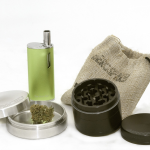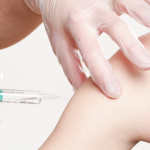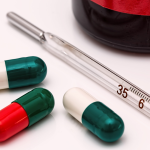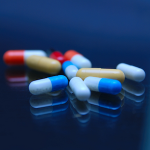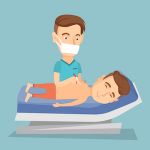In this radio discussion, Lars Larson and I discuss the efficacy of over-the-counter cold and allergy medications, specifically those containing phenylephrine. The radio host expresses his concern as someone who relies on his voice for his profession, and who occasionally uses these medications to alleviate congestion.
placebo effect
Last week a study reported that according to a meta-analysis, cannabis was no better than a placebo in the treatment of pain. As you would expect, that study generated some headlines, but almost uniformly, the media buried the last paragraphs about their role in generating expectations.
To what degree does a patient’s belief that treatment will succeed influence care outcome? Can a study of treating appendicitis with antibiotics shed some light on the role of faith in our care?
There is a tussle between those that believe that our COVID vaccines are net beneficial and those that argue that there are too many adverse side effects. The combatants cite data from varying sources, always pointing out that their opponents’ data are, as Mark Twain states, “lies, damn lies, and statistics.” A new paper from JAMA Network Open puts some context to the numbers.
Placebos have been found to be about a third as helpful as active medication across a range of diseases – cancer, not so much. How the placebo is delivered, in terms of the framing by the physician, the social media acolytes, and accolades, all are part of their effectiveness. A new article in Pain suggests placebos may be becoming even more effective.
A 26-year-old man attempted suicide by taking 29 capsules of an experimental drug obtained from a clinical trial. His vital were alarming, but treatment improved his condition. Later, a doctor told him the pills weren't antidepressants, as the man believed. That's because he'd been randomized into the control arm of the trial. Yes, that's right: He overdosed on placebos.
From a security standpoint, the only thing that matters is that our soldiers are effective at killing people and breaking things. Does acupuncture help accomplish that? We presented one opinion last week. Now, here's a second viewpoint on the matter.
People who already believe in the benefits of "brain training" may be more likely to participate in a study that is explicitly about the benefits ... of brain training. Obviously, such self-selection will bias the results, and the placebo effect can magnify them.
Acetaminophen is recommended as a first-line treatment for acute lower back pain according to medical guidelines. However, this recommendation has not been supported by research. A new
Yes
by Kenneth E. Legins
In 1903 Mark Twain wrote of Christian Science: "The power which a man's imagination has over his body to heal it or make it sick is a force which none of us is born without. The first man had it, the last one will possess it." The power of the mind over the body is often indisputable, even among the staunchest defenders of the scientific method. The biologic effect of hope or faith, which scientists sometimes refer to as the placebo effect, is little understood in the medical community.

